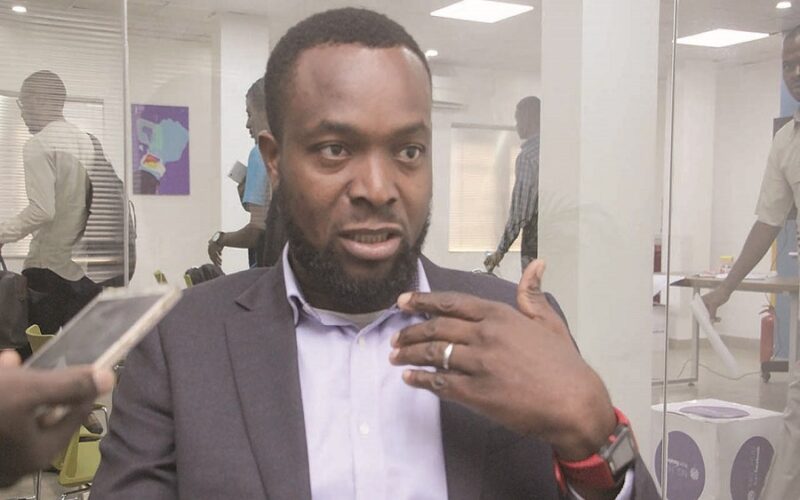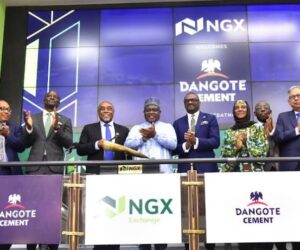2
Anthony Ufoh
Bosun Tijani, the Minister of Communications, Innovation and Digital Economy, has said that his approval of a tariff hike in the telecommunications sector of the Nigerian economy is one of the hardest decisions he has had to take.
He made this statement in an interview on Arise Television, just as he stressed that the Federal Government was careful about the whole process in order not to create a weak balance and impoverish Nigerians.
However, he stated that the decision has now paid off, revealing that he is aware that the telecoms companies are currently expecting infrastructure worth about $1 billion to upgrade their network infrastructure
Tijani said, “When we came in, we met a very difficult situation. Difficult in the sense that inflation all over the world, including in Nigeria, has been on the rise significantly over the last years, especially after COVID. And in Nigeria, because we as a government had to take the difficult decision of embarking on reforms that the president had clarity on as being the critical path to growing our economy, it meant that it was quite difficult for the companies.
“And these companies had not been able to increase tariffs for the last 10 years. It got to the point where they were even declaring losses. It was becoming difficult for them to mobilise capital to bring into the country to invest. And it took us a while. They kept pushing. It took us a while.
“We took the painful process of understanding what would be the optimal allowance that we could give to them that would not send people bankrupt, and still allow them to be sustainable enough. It was quite tough. I think it was probably one of the most difficult things I’ve had to do as a minister. But I think we got it right.”
But with the tariff hike, he noted that things were beginning to look up in the sector, including the news that the telecoms companies are awaiting their orders from abroad, meant to upgrade their operations.
Tijani explained that without the rise in tariff, many workers in the sector would have been laid off, stressing that the sector now contributes significantly to the nation’s Gross Domestic Product (GDP) after the liberalisation policy of the federal government.
He said, “I hope it’s getting there. I see two things that people don’t celebrate the government for. If this sector were allowed to continue to struggle, we were going to be losing significant jobs. And we could trace in Nigeria today about half a million jobs to that sector.
“And if they started struggling, what would happen is they would start shedding jobs. And as they start shedding jobs, those would be our people who used to be gainfully employed who would not be employed. So that’s one thing. But we’ve seen that this is a sector that has not been losing jobs over the last two years. It’s been increasing.
“The other thing that we track is investment in the sector. And we have authoritative information from original equipment manufacturers that Nigerian telecommunication companies have paid over $1billion for equipment that is coming into this country. Because we’ve also mandated that if we allow an increase in tariff, they must also invest in infrastructure to ensure that the quality of experience of our people will be on the rise,” the minister added.
Besides, he reiterated that the federal government was negotiating about $2 billion investment to boost the country’s fibre optic network.
“But we’re not stopping there. Also, the government is now at a point where we’ve been able to negotiate a good investment that is up to $2 billion that is going to be going into a fibre optic network,” he added.
According to him, after the full liberalisation of the telecommunications sector in 1999, it became the major engine that has been driving significant growth in GDP in Nigeria, explaining that before full liberalisation, the graph was almost flat.
He said, “Imagine what telecommunications was like. Before the full liberalisation, Nigeria had just about 500,000 telephone lines. Today, we have over 200 million lines. So it’s really skyrocketed productivity across key sectors.
“It’s not where we want it to be, but we’ve been doing well. The work we’ve been doing is actually mobilising the money which has been led by the World Bank. So we’re a couple of weeks away from confirming that leadership chunk of the funding, which is about half a billion dollars.
“I spent the entire day today reviewing a set of documents with folks from the bank, which is focused on helping us, then mobilising 51 per cent of the total that we require towards being able to deploy this. But what we’ve done in the last three years is negotiate this deal with the right investors,” he added.







